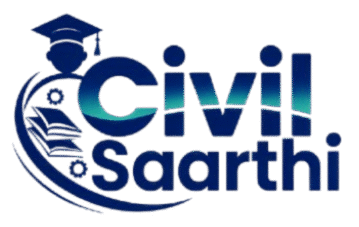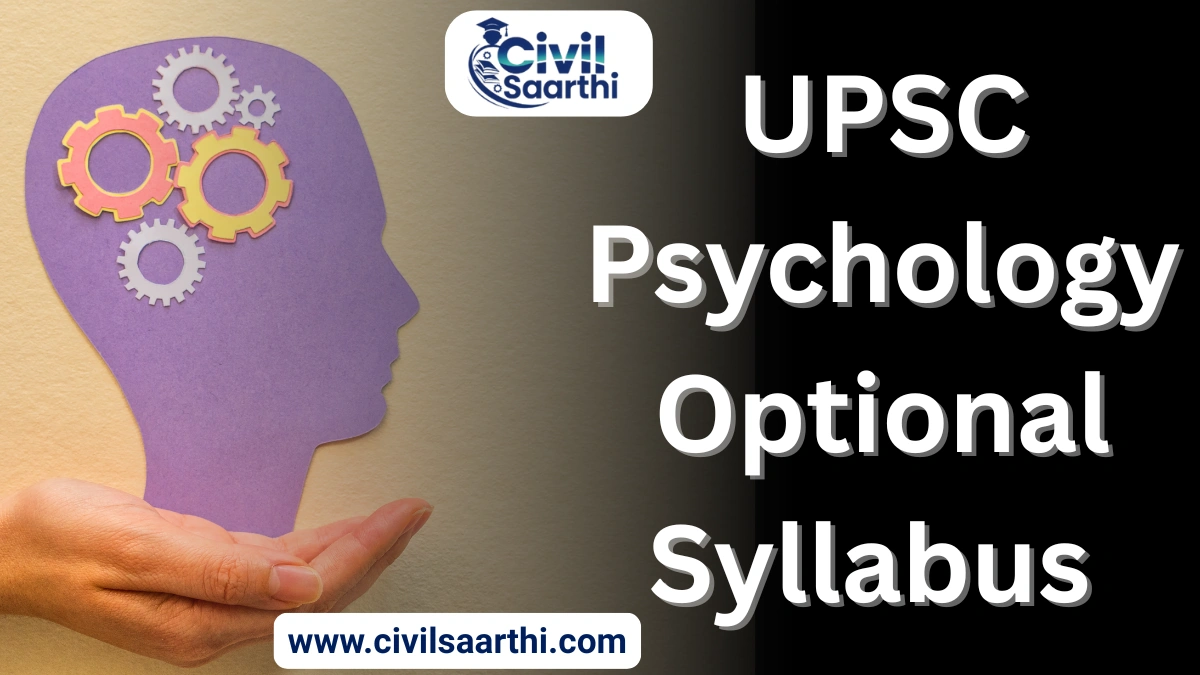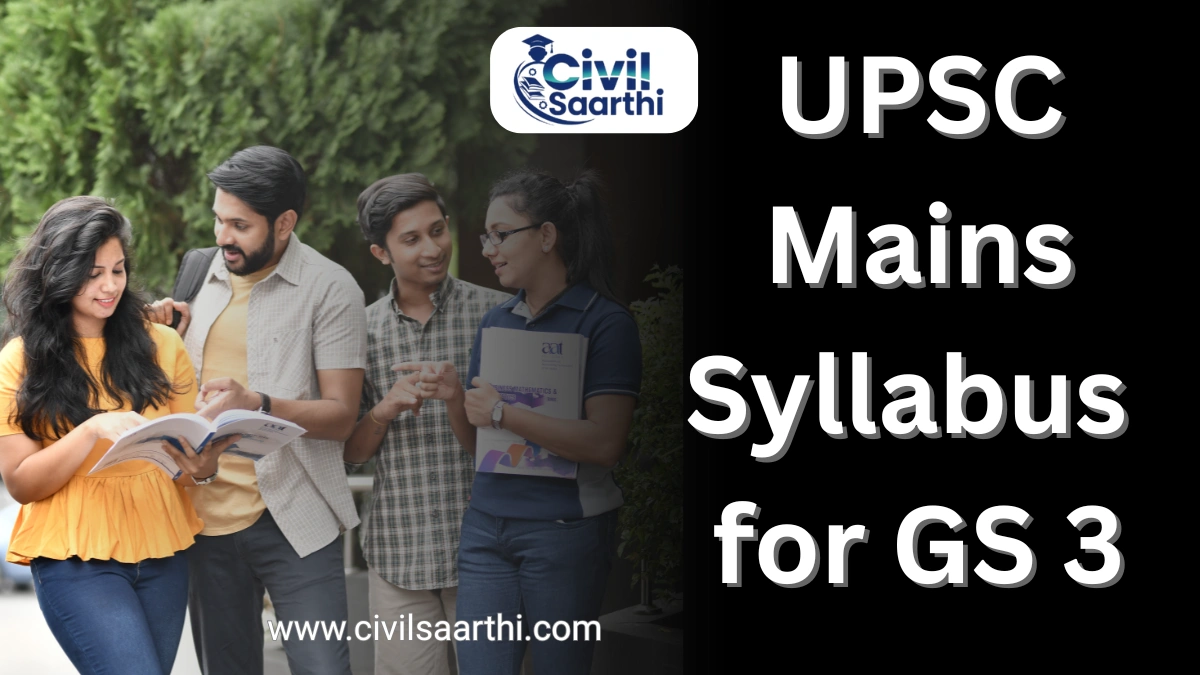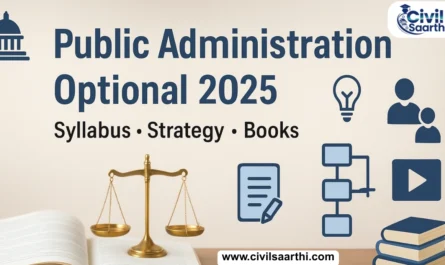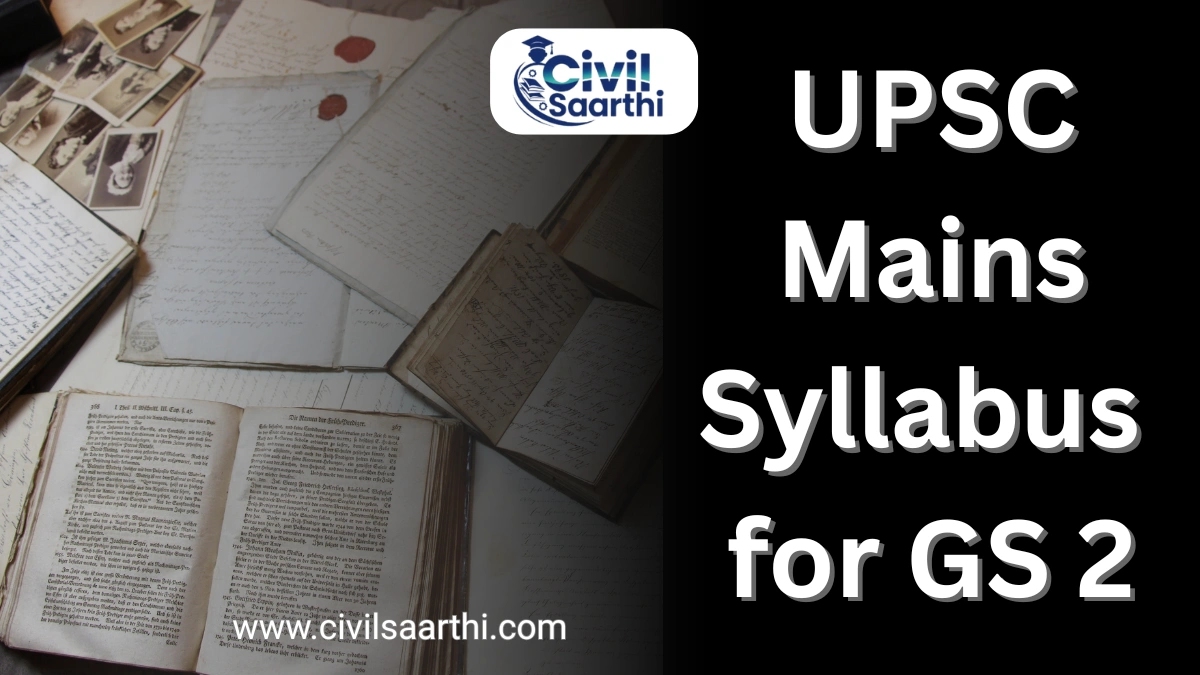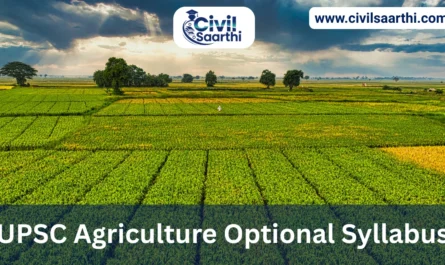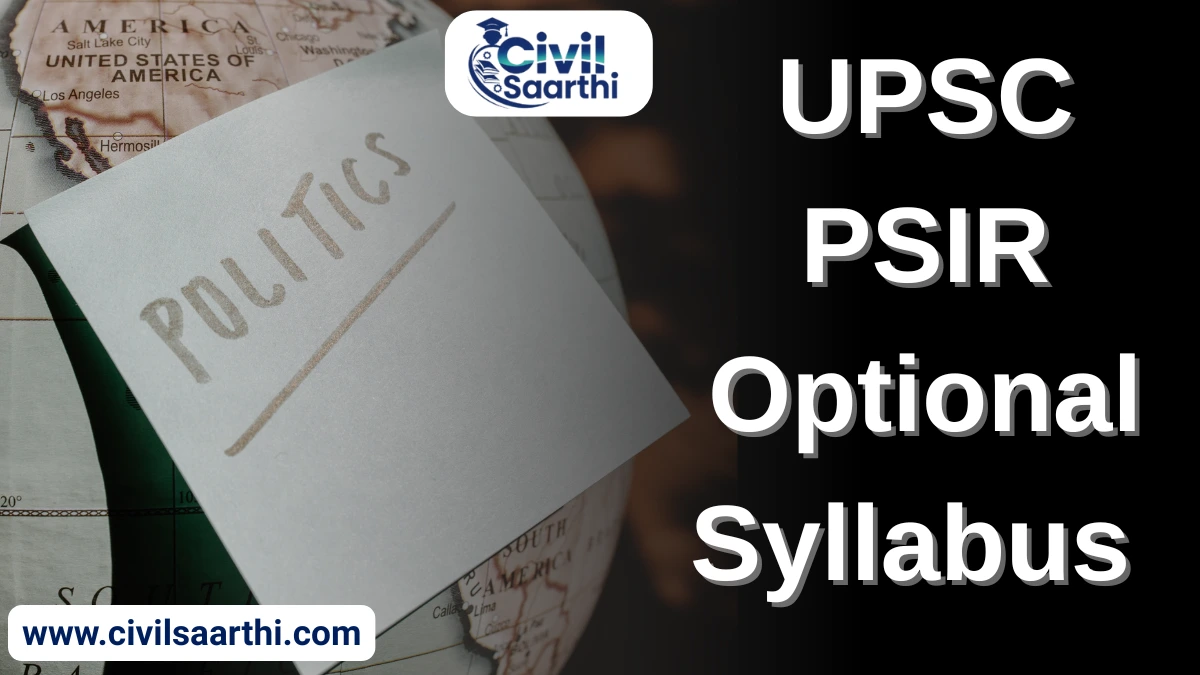The UPSC Psychology Optional Syllabus is a meticulously structured framework designed for aspirants aiming to delve deep into the scientific study of human behaviour and mental processes. This syllabus not only encompasses theoretical foundations but also emphasizes the application of psychological principles to real-world scenarios, making it a compelling choice for candidates with a background or interest in psychology.
UPSC Psychology Optional Syllabus
The UPSC Psychology Optional Syllabus is a well-structured and high-scoring optional subject in the UPSC Civil Services Mains Examination. It is divided into two papers, each carrying 250 marks, totalling 500 marks.
- Paper I covers foundational psychological concepts such as learning, memory, intelligence, motivation, emotion, personality, and research methodology.
- Paper II focuses on applied psychology in areas like health, education, organization, rehabilitation, forensic, community, and gender studies.
UPSC Psychology Optional Syllabus Overview
The UPSC Psychology Optional Syllabus is divided into two comprehensive papers, each carrying 250 marks. Paper I focuses on the core psychological concepts, theories, and research methods that build a strong foundation in the subject. Paper II emphasizes the practical and applied aspects of psychology in real-world contexts such as health, education, organizations, and social issues.
UPSC Psychology Optional Syllabus Overview | ||
| Paper | Subject Coverage | Marks |
| Paper I | Foundations of Psychology | 250 |
| Paper II | Psychology: Issues and Applications | 250 |
Detailed Breakdown of UPSC Psychology Optional Syllabus
The UPSC Psychology Optional Syllabus offers a structured and in-depth exploration of both theoretical and applied psychology. It is divided into Paper I and Paper II, each addressing different facets of the discipline. Paper I includes foundational topics like learning, memory, intelligence, and personality, while Paper II deals with their applications in fields such as health, education, organizations, and community development.
Paper I: Foundations of Psychology
The UPSC Psychology Optional Syllabus for Paper I lays the groundwork for understanding the basic concepts and theories in psychology. It encompasses the evolution of psychological thought, research methods, and fundamental psychological processes.
Topics in UPSC Psychology Optional Syllabus – Paper I | |
| Unit | Topics Covered |
| Introduction | Definition, historical antecedents, and trends in psychology; relationship with other sciences; application to societal problems. |
| Methods of Psychology | Types of research; methods including survey, observation, case study, and experiments; experimental and non-experimental designs. |
| Research Methods | Statistical analysis; correlation and regression; sampling techniques; reliability and validity. |
| Biological Basis of Behavior | Neurons and nervous system; endocrine system; heredity and environment; biological rhythms. |
| Sensation and Perception | Sensory processes; perceptual organization; theories of perception; attention. |
| Learning | Classical and operant conditioning; cognitive learning; observational learning; factors influencing learning. |
| Memory | Models of memory; forgetting; memory disorders; techniques to improve memory. |
| Cognition and Language | Thinking processes; problem-solving; decision-making; language development. |
| Intelligence and Aptitude | Theories of intelligence; measurement; emotional intelligence; creativity. |
| Motivation and Emotion | Theories of motivation; physiological and psychological aspects; theories of emotion. |
| Personality | Theories of personality; assessment techniques; traits and types. |
| Attitudes, Values, and Interests | Formation and change of attitudes; measurement; role in behavior. |
| Application of Psychology | Application in education, health, environment, and other fields. |
Paper II: Psychology: Issues and Applications
The UPSC Psychology Optional Syllabus for Paper II delves into the practical applications of psychological principles across various sectors, addressing contemporary issues and challenges.
Topics in UPSC Psychology Optional Syllabus – Paper II | |
| Unit | Topics Covered |
| 1. Psychological Measurement | Psychological testing; standardization; reliability and validity; test construction. |
| 2. Community Psychology | Concept and practice; community mental health; role of psychologists in community settings. |
| 3. Rehabilitation Psychology | Principles; types of rehabilitation; role of psychologists; intervention strategies. |
| 4. Organizational Behavior | Theories of motivation; leadership; communication; organizational development. |
| 5. Educational Psychology | Learning styles; instructional strategies; assessment and evaluation; special education. |
| 6. Health Psychology | Health behavior; stress and coping; health promotion; chronic illness management. |
| 7. Environmental Psychology | Human-environment interaction; environmental stressors; sustainable behavior. |
| 8. Forensic Psychology | Criminal behavior; legal processes; assessment of offenders; rehabilitation. |
| 9. Psychology of Gender | Gender identity; gender roles; gender issues; psychological perspectives. |
| 10. Social Integration | Prejudice and discrimination; strategies for social integration; role of psychology in promoting harmony. |
UPSC Optional Psychology Syllabus PDF
For aspirants preparing for the UPSC Psychology Optional Syllabus, accessing the official syllabus is crucial for structured and focused preparation. The Union Public Service Commission (UPSC) provides a comprehensive PDF detailing the syllabus, ensuring candidates are well-informed about the topics and subtopics to be covered. This official document serves as a reliable guide to align your study plan effectively.
Download UPSC Psychology Optional Syllabus PDF
Preparation Strategy for UPSC Psychology Optional Syllabus
A well-structured and disciplined preparation strategy is essential to excel in the UPSC Psychology Optional Syllabus. Candidates should begin by thoroughly understanding the syllabus and building a strong conceptual base through standard textbooks.
- Understanding the Syllabus: Familiarize yourself thoroughly with both papers to identify overlapping areas and unique topics.
- Standard Textbooks: Begin with NCERT textbooks for a foundational understanding before progressing to advanced materials.
- Regular Revision: Consistent revision is crucial to retain complex theories and concepts.
- Answer Writing Practice: Develop the skill of articulating psychological concepts clearly and concisely within the word limit.
- Stay Updated: Incorporate current examples and case studies to enhance the relevance of your answers.
Recommended Books for UPSC Psychology Optional Syllabus
Choosing the appropriate study materials plays a vital role in effectively covering the UPSC Psychology Optional Syllabus. The following curated list includes authoritative and widely recommended books that comprehensively address the syllabus topics. These books help build strong conceptual understanding and provide insights into both theoretical and applied aspects of psychology, making them indispensable resources for aspirants.
Recommended Books for UPSC Psychology Optional Syllabus | ||
| Paper | Book Title | Author |
| Paper I | Psychology | Robert A. Baron |
| Paper I | Introduction to Psychology | Morgan & King |
| Paper I | Psychology | Ciccarelli & White |
| Paper II | Applied Psychology | Smarak Swain |
| Paper II | Organizational Behavior | Stephen P. Robbins |
| Paper II | Health Psychology | Shelley E. Taylor |
Important Topics in UPSC Psychology Syllabus
While every part of the UPSC Psychology Optional Syllabus holds value, some topics stand out because of their frequent appearance and weightage in past exams. Focusing on these key areas can improve your chances of scoring well.
- Research Methods: Understanding various research designs and statistical tools.
- Personality Theories: Comparative analysis of different personality frameworks.
- Motivation and Emotion: The interplay between physiological and psychological aspects.
- Organizational Behavior: Application of psychological principles in workplace settings.
- Health Psychology: Strategies for health promotion and disease prevention.
UPSC Psychology Optional Syllabus FAQs
Is a background in psychology mandatory for choosing it as an optional subject?
No, a formal background is not mandatory. However, an interest in understanding human behavior and commitment to studying the subject can compensate for the lack of formal education in psychology.
How does the scoring trend for psychology optional compare to other subjects?
Psychology has a consistent scoring trend, with candidates often achieving high marks due to the subject’s scientific nature and applicability.
Can psychology optional help in the General Studies papers or Essay?
Yes, concepts from psychology can enrich answers in Ethics (GS Paper IV), Essay, and even in topics related to society and governance.
Are there any online resources or coaching for psychology optional?
Institutes like Vajiram & Ravi offer specialized courses for psychology optional. Additionally, various online platforms provide resources and mentorship.
How much time should one allocate daily for psychology optional preparation?
Ideally, dedicating 2-3 hours daily over several months can lead to comprehensive coverage and understanding of the syllabus.
